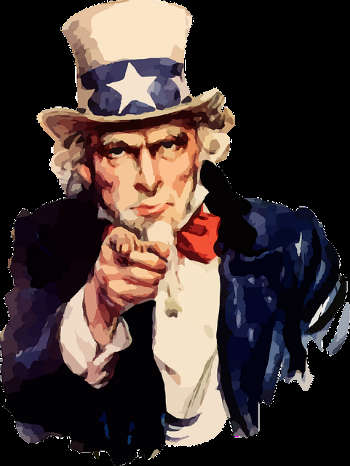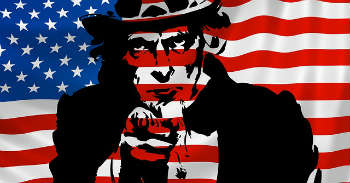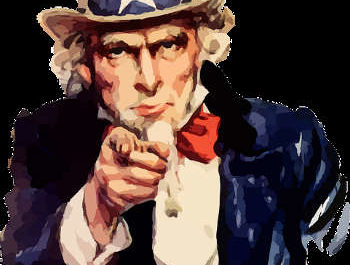Where Did The Uncle Sam Nickname Come From?
Uncle Sam is an iconic figure in America, a symbol of American government and patriotism, yet symbolic for other aspects of life, such as paying taxes.
Where did the nickname and the iconic figure come from? How did he become so popular? Find out the origin of the Uncle Sam nickname as Ira Riklis goes into detail.
Uncle Sam, The Real Man Behind The Nickname
Uncle Sam is not just a name derived from an imaginary figure. Multiple sources base the story behind the creation of Uncle Sam on a real man. Sam Wilson was a business executive during the War of 1812. He likely never imagined that his likeness or knowledge of his own existence would transcend generations and become an American symbol of patriotism and representative of American Government.
Samuel Wilson and his brother Ebenezer ran a simple meat packing business. It was his business dealings and his fairness in business that soon led to the creation of the nickname. Samuel Wilson, along with his brother Ebenezer, were owners and proprietors of the E. & S. Wilson Company. , According to Legends of America, Samuel Wilson was well known throughout the town of Troy, New York as a fair man, honest, reliable and very patriotic. Customers and townspeople began referring to him as “Uncle Sam.”
Samuel Wilson Becomes An Uncle To Soldiers
When the nickname first caught on, few people, including Sam, likely had any idea of the lasting effect of the nickname and the impact the combination of Sam Wilson’s patriotism and his nickname would soon have on government.
Then Secretary of War, William Eustis, entered into a one-year contract with a man named Elbert Anderson, Jr. to arrange for supply and issuance of all rations to U.S. Military forces stationed in New York and New Jersey. Anderson, Jr. then chose Ebenezer and Sam Wilson to provide the meat for shipment to the troops.
The Smithsonian explains that Sam Wilson delivered barrels with meat packed inside each supply barrel to soldiers during the War of 1812. Soldiers receiving the barrels also called Wilson “Uncle Sam” and the nickname caught on throughout the town as well as with the soldiers that received meat deliveries from E. & S. Wilson.
The Iconic Nickname Catches On
After filling the barrels and getting them ready for shipment, each barrel was stamped “E.A. – US.” This fulfilled requirements that all ration containers have a stamp indicating the name of the contractor, in this case, Elbert Anderson. The U.S. stood for the United States. However, a simple joke gave it a new meaning.
Story has it that soldiers joked that the “U.S.” label on the barrels meant “Uncle Sam,” their beloved Sam Wilson. Once the local newspapers published the story about “Uncle Sam” feeding soldiers, the nickname caught on even more.
Uncle Sam soon began appearing in drawings and political cartoons. Instead of dying out after the War of 1812 ended, the figure of Uncle Sam continued to grow in popularity. The addition of a white beard and a suit with stars and stripes undoubtedly personified Uncle Sam as a symbol of American Government.
Uncle Sam Wants You
As World War I drew Americans into a new war, Uncle Sam played an important role in encouraging young men to enlist and for people at home to involve themselves in the war effort to support the troops and demonstrate American patriotism. The Library of Congress (LOC) reveals that the country officially adopted Uncle Sam as a national symbol in 1950.
The Uncle Sam figure has since appeared on many posters and advertisements related to the U.S. Military. The LOC also provides examples of some of the popular Uncle Sam posters on the Library of Congress website.







